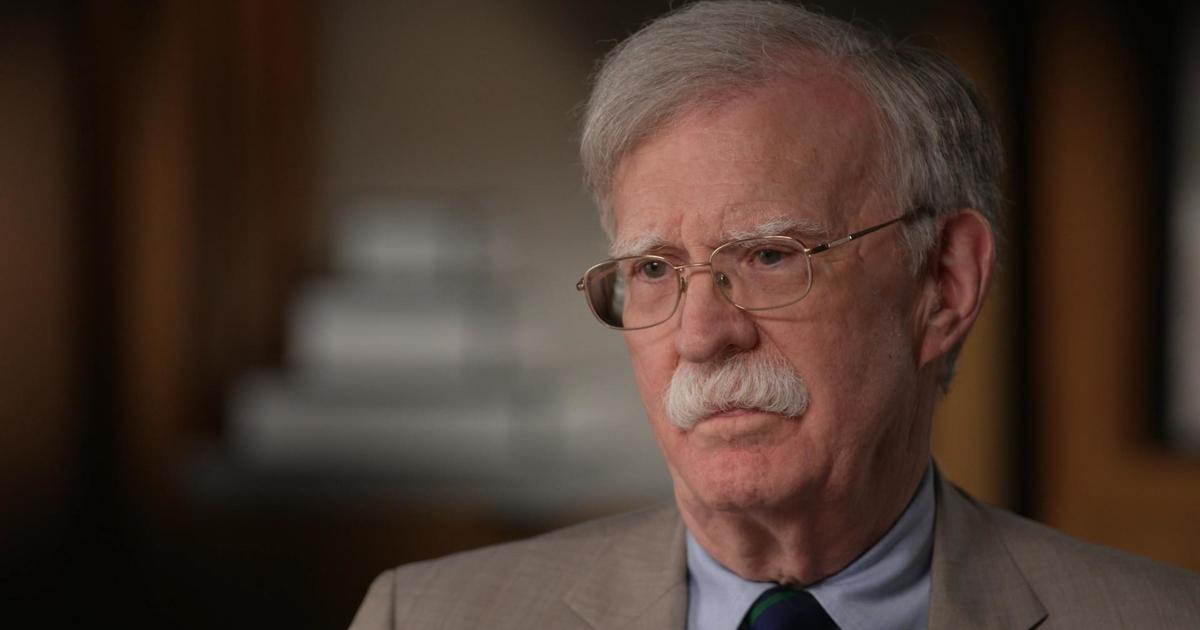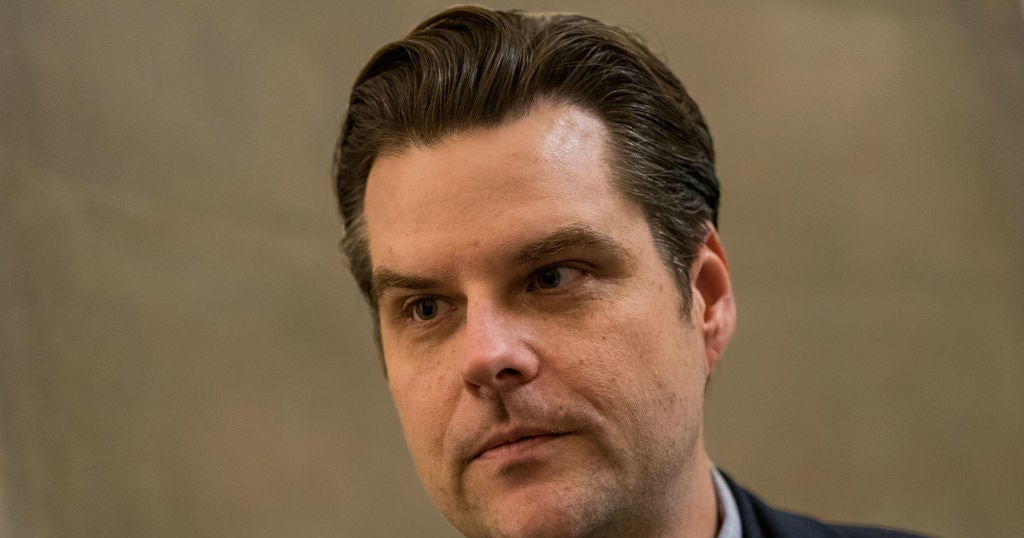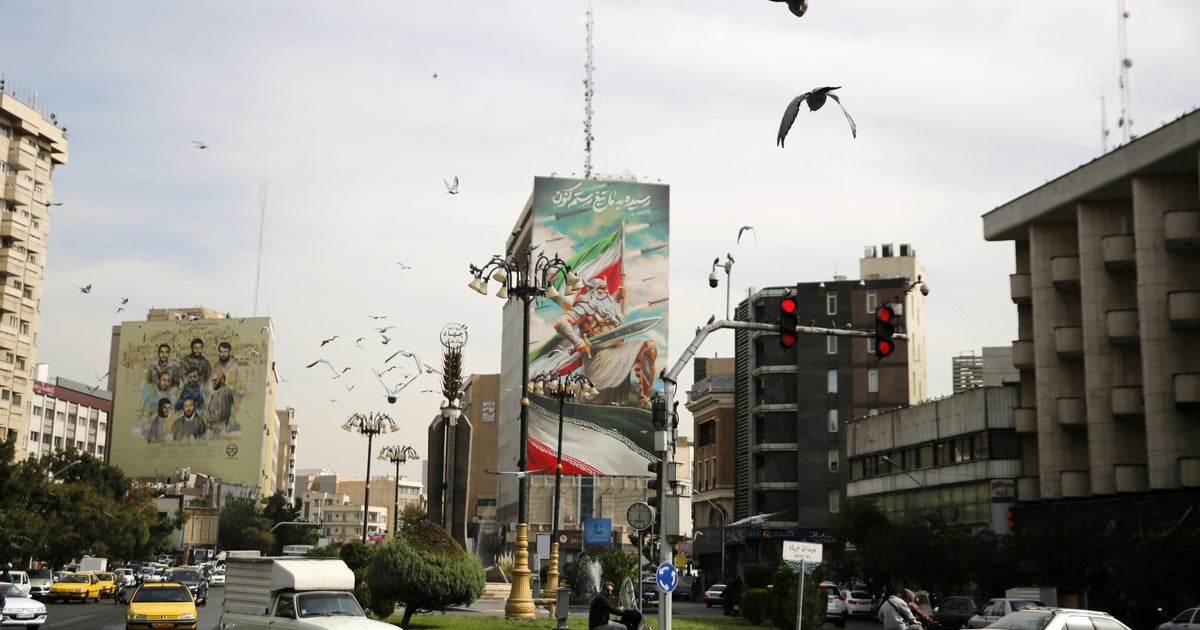CBS News
Secret Service paid over $12 million for a year’s protection of 2 Trump advisers from potential Iranian threats

John Bolton and Robert O’Brien, two former national security advisers who served in the Trump administration, required ongoing U.S. Secret Service protection long after they left their positions due to potential threats from Iran. Newly released documents reveal the cost to taxpayers of that security. For nearly one year of protection, the total for both individuals was $12,280,324.
The cost of the security details was disclosed in a series of Department of Homeland Security reports to Congress, signed by DHS Secretary Alejandro Mayorkas. The reports [were obtained by “60 Minutes” through a Freedom of Information Act request with the U.S. Secret Service, as part of a report about Iran’s escalating threats against former Trump officials.
While the Homeland Security reports do not mention Iran by name, “60 Minutes” has independently verified that Bolton and O’Brien were receiving protection due to possible threats from the regime. The DHS documents disclose the protection for both men involves dedicated special agents, 24 hours a day, covering their homes and offices, as well as domestic and foreign travel. Officials like Bolton and O’Brien do not typically receive this level of protection once they leave office, and not for as long as both have been receiving it.
Bolton received no protection initially after he left the White House. He started getting protection in December 2021, when the Iranian threat to his life came to light. According to the documents, former President Donald Trump, upon his departure from office, directed the Secret Service to provide protection for O’Brien. For the period ending Sept. 30, 2021, that cost $1,928,922. The documents reveal President Biden then directed the U.S. Secret Service to extend both men’s protection.
The documents shed some light on a topic that remains largely out of public view: the financial toll of protecting American decisionmakers from foreign governments’ transnational aggression.
As “60 Minutes” first reported in a segment that aired Nov. 12, 2023, Iran has openly targeted former members of President Trump’s administration — threatening to kidnap and kill them in an effort to avenge the 2020 assassination of Iranian Gen. Qassem Soleimani, the mastermind behind terror plots around the world.
Other former U.S. officials targeted by Iran include former Secretary of State Michael Pompeo, former Defense Secretary Mark Esper, General Kenneth Frank McKenzie, and Special Representative for Iran Brian Hook.
According to several domestic and foreign intelligence and law enforcement agencies, Iran’s efforts targeting American officials have become more frequent and bolder, with attempts both abroad and on U.S. soil, orchestrated at the highest level of the Iranian Ministry of Intelligence and Security, as well as the Quds Force and the Iranian Revolutionary Guard Corps’ Intelligence Organization.
According to the documents, for a 10-month period, starting Dec. 1, 2021, and ending Sept. 30, 2022, the payroll bills for the U.S. Secret Service to protect Bolton were $4,934,963. For a year-long period starting on Oct. 1, 2021, the payroll bills to protect O’Brien were $5,778,713.
In addition, there were non-payroll related expenses. The largest by far was foreign travel costs, followed by vehicle rentals. Other expenditures included temporary alarms and other equipment rentals for a combined additional total of $1,566,648. The combined cost for both individuals was $12,280,324. This figure does not reflect the overall cost to protect American officials from Iranian threats; there are far more targets, and the reports cover only a fraction of the time the officials were being protected.
The reports released to “60 Minutes” cover a one-year span ending in 2022. But some officials continued to receive protection and do so to this day. Bolton told “60 Minutes” the threat against him is ongoing.
“We’ve got marked Secret Service cars that say, ‘Police. United States Secret Service,’ outside my home,'” he said.
When he said that, it was a full year after the period covered by the documents released to “60 Minutes,” so the total cost of protection just for Bolton and O’Brien, could be far higher.
Before “60 Minutes” obtained these reports, the biggest clue regarding costs was in a congressional memo obtained by The Associated Press in March 2022, revealing the State Department had been spending $2 million a month to provide around-the-clock security to Pompeo and Hook.
The reports released to “60 Minutes” included some additional figures regarding the protection of former White House officials. When leaving office, President Trump directed the U.S. Secret Service to provide protection to chief of staff Mark Meadows and Treasury Secretary Steven Mnuchin for six months, ending July 20, 2021, costing a total of $6,194,121 for those two men and O’Brien. The presidential memorandum authorized the protective services to last six months for Meadows and Mnuchin, which ended on July 20, 2021.
In addition to American officials, law enforcement has provided protection to Iranian dissidents and journalists living in the U.S., following credible threats against them from Iran.
Other countries have done the same. In January, following “60 Minutes'” report, British police set up a new unit to counter threats posed by Iran, China and Russia. The head of the new British police unit to target foreign plots and Britain’s head of counter-terrorism policing, Matt Jukes, told “60 Minutes” that the U.K. had foiled 15 Iranian kidnapping and assassination attempts.
“I have been involved in national security policing for over 20 years. What we’ve seen in the last 18 months is a real acceleration,” Jukes said last year.
Bolton’s story
60 Minutes
Several of the Americans targeted by Iran declined our request to be interviewed for the aired segment, but John Bolton agreed. The former national security adviser told Lesley Stahl, “The Revolutionary Guard sought to procure either my kidnapping or my assassination, not directly by a Revolutionary Guard’s member, but by seeking a hitman, who would carry out the job either in the U.S. or abroad. This was not internet chatter. This was a negotiation to murder an American citizen, a former government official.”
In August 2022, the Department of Justice announced criminal charges against Shahram Poursafi, a 47-year-old Iranian national and suspected member of Iran’s Revolutionary Guard, for allegedly trying to orchestrate Bolton’s assassination. Prosecutors say he attempted to pay $300,000 to an individual in the U.S. to kill Bolton. In communications obtained by the FBI, Poursafi said he had a “second job,” understood to be a second target, for $1 million later.
That second “job” was reported by web news outlet Axios to be former Secretary of State Mike Pompeo. Poursafi, who remains at large, presumably in Iran, originally contacted the U.S.-based prospective assassin via social media, not realizing that that person was secretly working as an FBI informant.
Read the full report below:
CBS News
House Ethics Committee planned to vote Friday on whether to release report on Matt Gaetz

The House Ethics Committee, which has been conducting an investigation into sexual misconduct and obstruction allegations against Rep. Matt Gaetz of Florida, scheduled a vote for Friday on whether to release its report, according to three sources with knowledge of the committee’s work.
Hours after President-elect Donald Trump said he planned to nominate Gaetz to be attorney general, Gaetz resigned his congressional seat, effective immediately.
“I do not intend to take the oath of office for the same office in the 119th Congress, to pursue the position of Attorney General in the Trump Administration,” Gaetz said in his resignation letter obtained by CBS News
House Speaker Mike Johnson told reporters that there was about an eight-week period during which Florida Gov. Ron DeSantis could fill his seat by setting the date for a special election.
Now that Gaetz has resigned, it is unclear whether the panel will vote on releasing the report, since Gaetz is no longer in Congress.
There is precedent in Congress on the Senate side for an ethics committee report to become public after a member resigns from Congress, however. In 2011, this happened when Sen. John Ensign of Nevada resigned amid allegations that he tried to hide an extramarital affair.
But it’s not clear that that would apply to the House, leaving open the possibility that the report on Gaetz would not be released.
In June, the House Ethics Committee released a statement saying it was investigating a range of allegations against Gaetz, including sexual misconduct, illicit drug use, and bribery.
Multiple sources at the time told CBS News that four women had informed the House Ethics Committee that they had been paid to go to parties that included sex and drugs, and that Gaetz had also attended. The committee has Gaetz’s Venmo transactions that allegedly show payments for the women.
Gaetz has repeatedly denied wrongdoing and has called the committee’s investigation a “frivolous” smear campaign.
Some of the allegations of sexual misconduct under review by the committee were also the subject of a previous Department of Justice probe into Gaetz. Federal investigators sought to determine if Gaetz violated sex trafficking and obstruction of justice laws, but no charges were filed.
The House Ethics Committee resumed its investigation into Gaetz in 2023, following the Justice Department’s decision not to pursue charges against him.
Gaetz has long blamed then-House Speaker Kevin McCarthy, also a Republican, for the probe. And Gaetz later led the movement to sack McCarthy as speaker.
CBS News
Democratic Congressman on the party’s messaging, focus

Watch CBS News
Be the first to know
Get browser notifications for breaking news, live events, and exclusive reporting.
CBS News
11/13: The Daily Report – CBS News

Watch CBS News
Be the first to know
Get browser notifications for breaking news, live events, and exclusive reporting.








